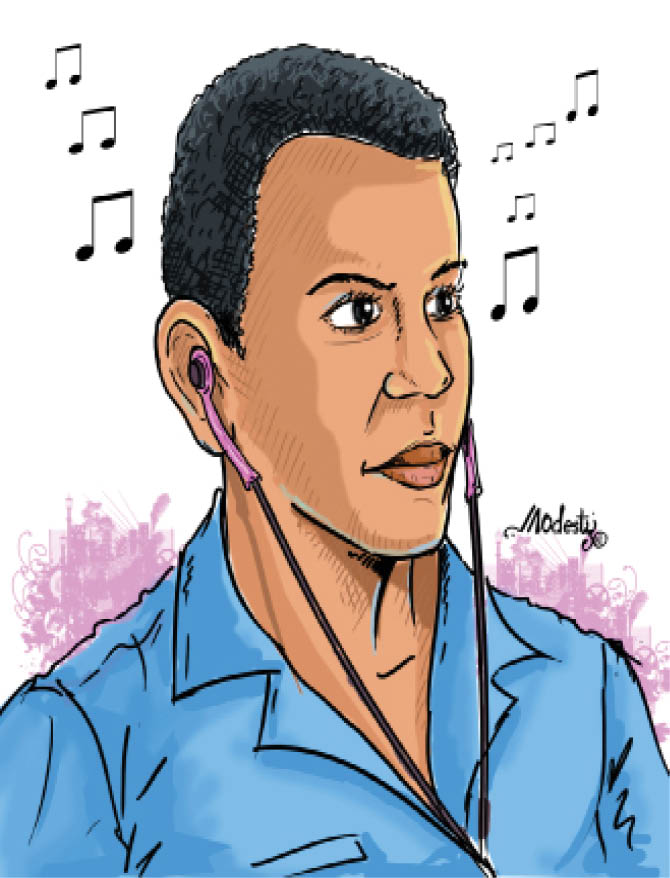Singing lullabies like “Twinkle Twinkle Little Star” could help put long COVID to bed, a research has suggested.
Sufferers who took part in an English National Opera-led programme found singing helped them breathe easier.
- COVID-19: Only 7.1% Nigerians have been vaccinated – AHF
- Nigeria experiencing reduction in COVID-19 cases, deaths – FG
The once-a-week scheme has been running since 2020 and aims to heal recovered virus patients left battling breathlessness.
It sees long COVID sufferers attend sessions with an ENO singer where they take part in breathing exercises like singing lullabies and making noises with straws.
Lullabies were chosen because they are short, easy to remember and designed to be calming.
Results of a trial comparing the outcomes of ENO Breathe attendees with a control group found the programme led to greater improvements in their breathing and mental well-being.
With hundreds of thousands of Britons estimated to have long COVID, experts say it is critical new evidence-based treatments are developed.
Long COVID is a poorly understood condition which can leave survivors with fatigue, shortness of breath and memory problems months after their illness.
There is no known cure, with the NHS instead aiming to provide ways sufferers can alleviate their symptoms or improve their condition.
Imperial College London researchers compared the results of 150 long COVID sufferers, 74 of who took part in the ENO Breathe programme – which lasted six weeks.
The others received the general NHS treatment which included physiotherapy such as general breathing exercises, physical exercise, balance training and fatigue management.
Researchers asked each participant to score their breathlessness at rest, walking, climbing stairs and running out of 100.
While both groups experienced improvements in their condition, the singing group saw bigger reductions in their breathlessness scores.
Singing patients reported an average 10.48-point reduction in breathlessness while running, compared to the control group.
They also recorded an 8.44 drop while climbing stairs, and a 2.72 fall while walking.
However, the non-singers reported a slightly greater improvement in their average at-rest breathlessness.
Participants were also compared on improvements in their mental health over the six weeks.
The researchers found out that the singers had an average 2.42-point improvement after the programme, compared to the control group.
One Breathe participant, a 44-year-old woman, said, “I feel that ENO Breathe has been healing for the trauma I have experienced and continue to experience: of having an unknown illness, not knowing if I will ever get better, and of receiving barely any medical care for over a year.”
Lead author of the study, Imperial’s Dr Keir Philip, an expert in heart and lung health, said with an estimated one in 50 people experiencing long COVID, finding new evidence-based treatments was crucial.
Dr Philip said, “Our study suggests that the improvements in symptoms experienced by participants resulted from both practical breathing techniques learnt, but also the creative, humane and positive way the programme was delivered.”
Fellow author, Dr Sarah Elkin, a respiratory care specialist, said Britain’s recovery from the pandemic must include ways to help long COVID sufferers.
He said, “It’s vital we find ways to support people with long COVID who are experiencing debilitating symptoms long after recovering from their initial COVID infection.”
Their findings were published in the journal, “The Lancet Respiratory Medicine”.
ENO’s Chair, Dr Harry Brünjes, said the opera company was extremely proud of its Breathe programme and how it had helped people experiencing debilitating long-term COVID symptoms.
Mail Online

 Join Daily Trust WhatsApp Community For Quick Access To News and Happenings Around You.
Join Daily Trust WhatsApp Community For Quick Access To News and Happenings Around You.


